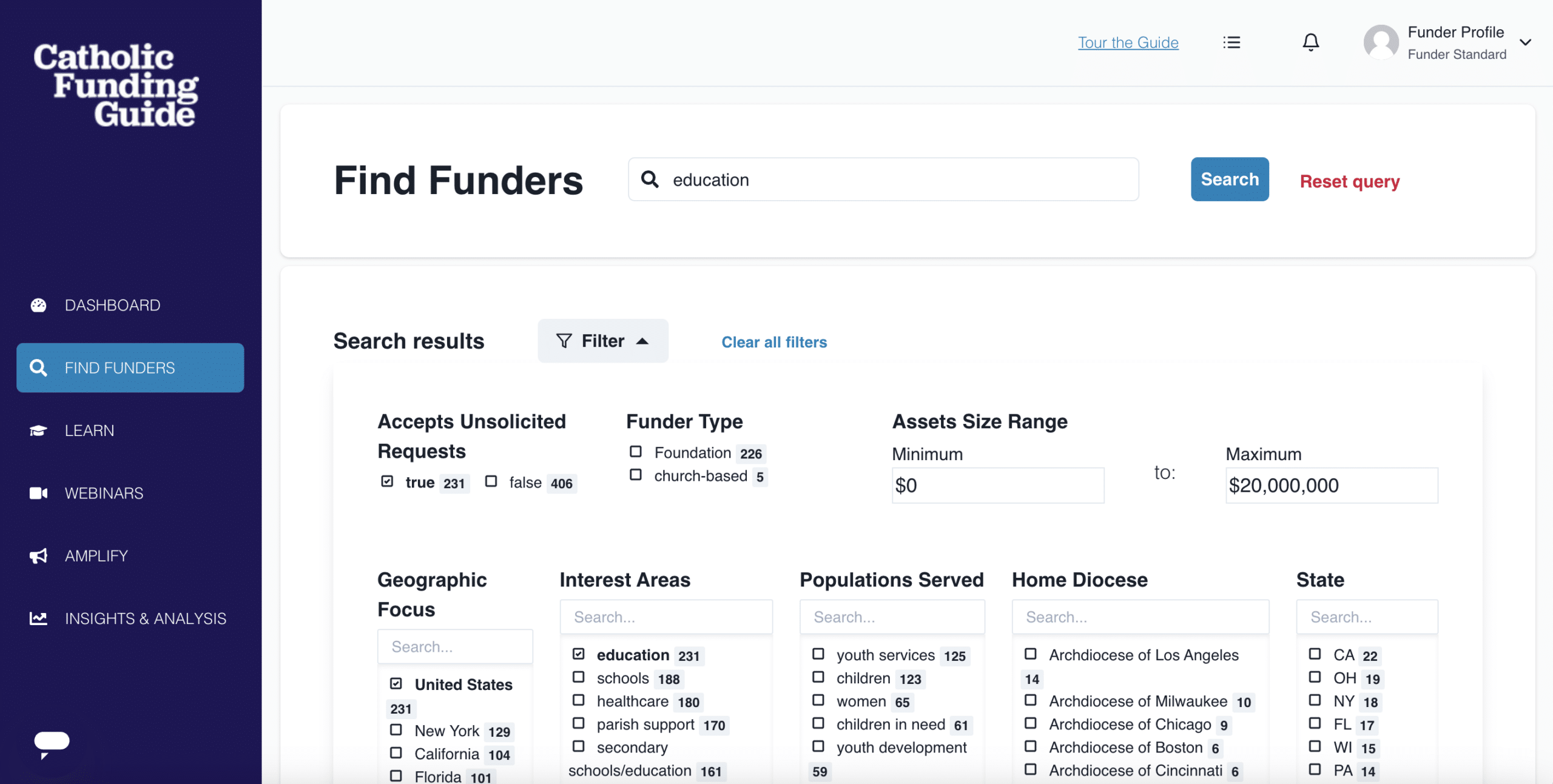Common Grant Seeking Challenges for Faith Based Organizations
Religious and faith based charities are widespread throughout the United States. According to Finances Online:
In the US, there are nearly two million nonprofit organizations and 501(c)(3) charities. The most prevalent type of nonprofits in the US are churches and religious organizations, followed by civic, social, and business organizations.
Source: https://financesonline.com/nonprofit-statistics/
In part, due to their prevalence, faith based nonprofits may encounter high competition for funding. This is not the only challenge, however. A mix of limited funding options, time constraints and a lack of strategy tend to compound the issue.
- Not enough time, not enough staff. Time constraints are universal among virtually all nonprofits, and faith based organizations are no exception. In fact they may even struggle with this more acutely due to a greater demand for their services in recent years, with not enough staff to keep up.
- Conflicting priorities. Similarly, it can be hard to prioritize fundraising when there are so many urgent demands on your attention to further your mission and keep your organization running.
- Ineligible for certain types of funding. Due to the religious aspect, faith based nonprofits are often excluded from consideration for employee matching programs or foundations with restrictions for faith based organizations.
- Uninformed about grant opportunities. Funding does exist for faith based organizations—but sometimes it can be tricky to know where to look, or by the time you find out you’ve missed a deadline.
- Don’t know where to start. Oftentimes the staff or volunteers at a faith based nonprofit wear many hats, and one of their many roles is fundraising. They may be overwhelmed by any and all of the above challenges, and may not even know where to start when it comes to effective grant searching.
- Poor fundraising strategy. Due to time constraints or perhaps limited experience, a faith based nonprofit professional will sometimes find themselves stuck with an unrealistic or vague fundraising strategy. This sets the organization up for difficulty in winning the grants and funds they need.
Facing any and all of these setbacks, how can a faith based organization find funding and win grants efficiently?
Faith Based and Religious Organizations: Are They Even Eligible for Grants?
Many nonprofit professionals who work at a faith based or religious organization may be confused about where they are even eligible to apply for grants.
Do foundations give to faith based organizations?
It depends. Every foundation has different requirements and preferences, but many do support religious or faith based organizations.
Some foundations may be project-based, so if your project aligns with their mission they don’t necessarily care if you are faith based or not. Others may want to especially fund certain types of outreach or programs from a certain religious group.
You might find other funders who want to see that the impact of your work extends to people of many backgrounds, not just to those in your organization’s religious group.
The Catholic Funding Guide has a database containing 1800+ funders who have supported Catholic organizations, indicating a willingness to support faith based organizations.
Grant Seeking Solutions for Faith Based Nonprofit Organizations
Here are 10 things you can do to increase your chances of finding potential funders and winning grants.
- Apply for non profit status if you haven’t. This will make your organization eligible for more grant opportunities.
- Know where to find grants. Ask other nonprofit professionals at faith based organizations where they suggest looking for grants. Use resources like the Catholic Funding Guide to find funders who may be interested in your work.
- Network whenever you can. You never know when a connection may lead to grant opportunities. Similar to how you network to share your work and increase your impact, you can always be on the lookout for opportunities to network with those in your community or at events who may be interested in supporting your work, or know someone else who would.
- Connect with local community foundations. Secular community foundations may only fund religious organizations for projects that benefit the greater community. However, donor advised funds held at community foundations may have more flexibility to give to religious organizations for faith-centered projects. You can also seek out faith based community foundations, which will likely be open to funding religious organizations for faith-related projects.
- Make sure you understand requirements and restrictions for any grant you pursue. For example, “when delivering a federally-funded program, you can’t discriminate against clients on the basis of religion. And when made available, religious activities must be offered on a strictly volunteer basis and delivered at a separate time and location than the federally-funded activities.” (Source: https://www.thenonprofittimes.com/grant/yes-faith-based-orgs-are-eligible-for-grants/)
- Sharpen your grant writing skills. Train volunteers and staff (and yourself if necessary) on how to write a letter of inquiry, a case for support, and grant proposals. The Catholic Funding Guide Knowledge Center, which includes blog posts to help you grow your fundraising skills and insights, can help with this.
- Understand your financial situation. Have a solid idea of your current financial state. This is necessary for budgeting and accurate proposals, of course; but it also bolsters your appeal to funders as responsible stewards of their gifts.
- Build relationships. Fundraising and grantmaking hinge on relationships. Understand how to build good relationships with funders and network with donors you do have.
- Think beyond grants. Grants are vital to your organization, but there are some other important areas you should focus on as well. A strong donor retention strategy is one of them. Following best practices to prevent and address donor fatigue is another. And a third? Find ways to prioritize fundraising in your busy schedule.
- Use grants wisely. The way you utilize a grant, report on the grant, and how you handle the relationship with the donor overall will make an impression on your funder. When you do receive a grant, steward it well and foster the relationship. This helps expand your network in the community and among funders.
Can Faith Based Organizations Receive Government Funding?
Yes, they can.
However, there is a caveat. Churches, specifically, may need to have 501(c)3 nonprofit status, or be affiliated with a school or outreach that does. Furthermore, government grants cannot be used to fund inherently religious activities (e.g. church service). Depending on the grant, this may be a requirement or a strong preference.
It can be a complex process to find and apply for government grants, so this might be an endeavor you can tackle once you have a solid strategy in place for approaching foundations. You can look online for government funding and learn what you can about the application process.
Learn more about the Catholic Funding Guide and how it can help you find funders who align with your mission and values.



